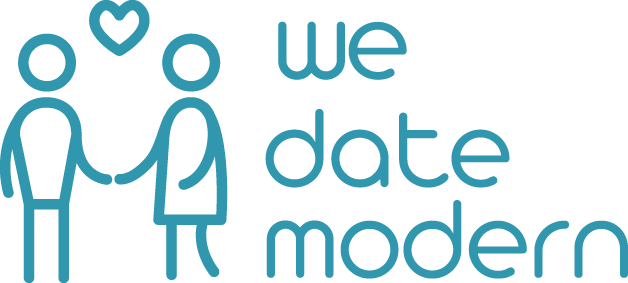Do you feel like sexual trauma is taboo to talk about in Christian circles?
It feels like lately we can’t get away from conversations about sexual assault, women’s rights to protect their bodies and the increasing awareness of female vulnerability. Statistics show that one in six women is the survivor of an attempted or completed rape. And yet, when women come forward to report their experience, unfortunately they are often met with suspicion, dismissal or judgment. Just consider the recent Brett Kavanaugh Senate hearing. As hero Christine Blasey Ford shared her memories of adolescent assault by a then-teen Brett, many of us were left flabbergasted by the degree to which some are unwilling or hesitant to hear women when they describe their experience of abuse.
Even in the church, we are recognizing the lack of openness and support of women who have been victimized by others (especially other members of the church body). Scandals at some of our high profile mega churches like Redeemer Presbyterian Church in New York and Willow Creek in Illinois are forcing us to reconsider how we talk about and investigate claims of sexual trauma in the church.
What is sexual assault?
One of the difficulties we have in talk about sexual assault is that we often lack a clear definition for what qualifies as inappropriate sexual contact. I’ve found that many of my therapy clients struggle to classify past traumatic experiences as actual sexual assault. They will suggest that they felt uncomfortable or possibly felt coerced. But whether due to denial, shame, uncertainty, or confusion, they are hesitant to call the past behavior assault. To be clear, sexual assault can run the gamut from unwanted contact from a total stranger to violent rape and sexual aggression. Safe Horizon, an organization dedicated to empowering victims of trauma, provides some helpful and clear language to distinguish between different kinds of assault. According to Safe Horizon, sexual assault includes:
Being forced to watch porn when you don’t want to.
Being touched in a sexual manner against your will, regardless of where you were touched.
Being prevented from using a condom or other protection during sex.
Someone putting a penis, finger or object in your vagina, mouth or anus when you didn’t want them to.
(Still have questions? Read more at safehorizon.org.)
“We have the capacity for healing. None of us are stuck in a permanent state of being traumatized.”
Here at We Date Modern, we have been considering the impact of a woman’s experience of sexual assault on her dating life. In essence, we’re asking beyond the post-traumatic stress and physical recovery, in what more insidious ways does a culture of sexual aggression and incident(s) of sexual assault warp our romantic relationships?
How might sexual trauma affect our relationships?
For this episode, we’re brought on a licensed clinical social worker, Danielle Murphy, to discuss the impact of sexual assault on our dating lives. Danielle specializes in caring for survivors of trauma and her ardent belief that human beings always have the capacity for healing made her the perfect guest.
Episode highlights:
Why sexual assault can be hard to define and how most women experience some form of unwanted sexual contact
The ways Danielle sees sexual assault and trauma impacting our dating lives
Sexual trauma is relational trauma and in the wake of assault our sense of safety changes
Why Danielle thinks we always have the capacity for healing and change
How the instinct to fight, flight or freeze shows up on a date when you often least expect it
Why our experience of trauma may cause us to interpret the behaviors of someone we’re dating as being dangerous
How sexual trauma can be the root of our avoidance of intimacy, either leading us to disconnect from others or ourselves
How pausing for self-examination can be helpful anytime we notice a contradiction between our desires and our actions
Danielle outlines some of the steps toward addressing a history of sexual assault in the context of dating
Chanel’s struggle with anxiety and how learning to accept her persistent assessment of risk has changed her
The value of accountability and the support of others to help us establish appropriate boundaries
When to share your sexual history with the person you’re dating
The shame narrative women are tempted to buy into and how the sexual ethics of the church can amplify the guilt women carry for past experiences
How acknowledging and honoring female sexual desire can help women more identify instances of abuse
Why Chanel thinks it’s not about “no means no” but rather “yes means yes”
Oh, before we go. Have you grabbed our Strategies for the Struggle? Our passion at We Date Modern is to help you date from a place of mental, emotional and relational health. In order to do that you need to know be aware of the top challenges Christian women are facing in modern dating and you need practical tips to manage these issues. We’ve got your back! Grab the free list now so you’re ready before your next date.
SUBSCRIBE & REVIEW
Are you subscribed to our podcast? If not, subscribe today on iTunes or Stitcher so you never miss an episode! We would also be so grateful if you left us a review over on iTunes so other people can join the conversation and explore Christian dating just like you. Just click here to review in less than 15 seconds. You can click the star ratings (obviously a 5-star hehe) and "Write a Review" to let us know what your favorite part of the podcast is. Thank you so much and we'll see you next week on the podcast!
Episode Links:
Danielle Murphy’s private practice - for ongoing one-on-one therapy
Healthy Minds NYC - therapy practice based on NYC (owned by Chanel and her husband Dr. Lanre Dokun)
Safe Horizon - help for survivors of rape and sexual assault
The Wounded Heart by Dan Allender
The Sexual Healing Journey by Wendy Maltz


